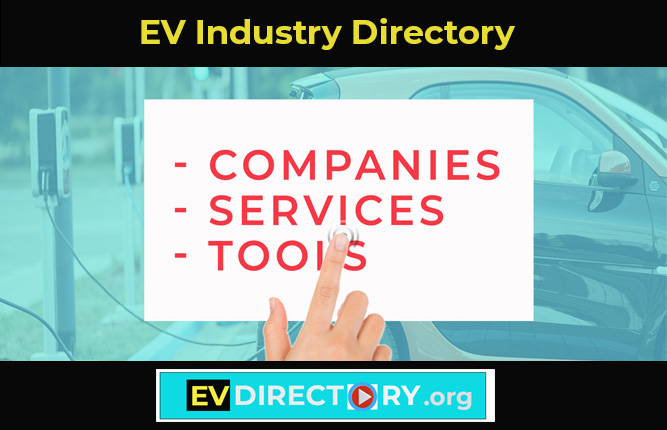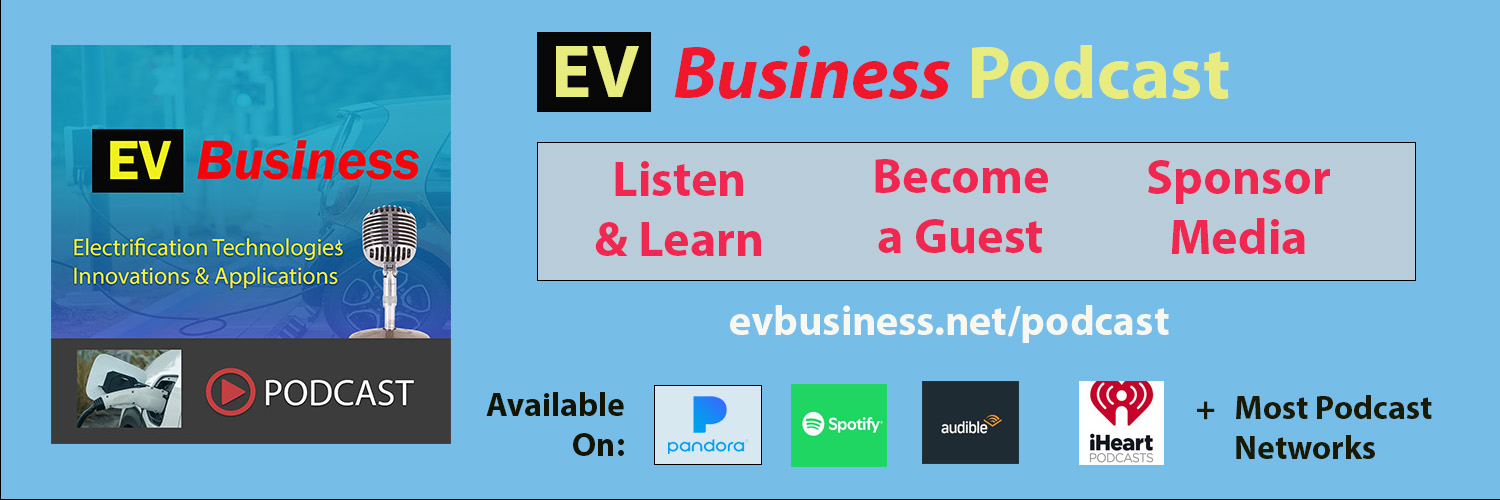EV Charger Servicing Companies maintain, repair, and optimize charging equipment and software to ensure reliable performance, maximize uptime, and extend the lifespan of EV charging systems for owners and operators. EV charger downtime and inconsistent performance can lead to revenue loss, tenant dissatisfaction, and regulatory risk for property owners and operators. EV Charger Servicing Companies solve these challenges by providing certified technicians, preventive maintenance, and 24/7 remote diagnostics that maximize uptime and ensure system reliability. Key features include rapid-response SLAs, OEM parts availability, firmware and cybersecurity management, and detailed reporting dashboards for performance analytics. With load management, multi-network compatibility, and lifecycle support, these services help extend asset life and control operating costs. Learn more about how EV Charger Servicing Companies deliver reliability, safety, and long-term value for every charging investment.
EV Charger Servicing Companies

EV Charger Servicing Companies List
ABM – EV Charging Services – Facility services provider offering preventative maintenance programs for EV charging networks.
Amerit Fleet Solutions – Nationwide fleet & EV charger maintenance services, equipment-agnostic with digital platform and technician network.
ATS 4 Solutions Corp. – Third-party nationwide service provider specializing in operations & maintenance (O&M) for EV charging stations.
ChargerHelp! – EV Charger Servicing – Dedicated EVSE operations & maintenance firm offering ‘Reliability as a Service’ for multi-vendor charger networks.
COIL – Offers tailored O&M programs (‘COIL CARE’) for EV charging infrastructure, including flexible service-contract options.
Diebold Nixdorf Inc. – EV Services – Provides installation and maintenance services for EV charger hardware and networks, supporting OEMs and CPOs.
ElectreeFi – Offers 24/7/365 EV charger station O&M, real-time monitoring, automated fault detection, and field support under annual maintenance contracts.
EV Connect – EV Charger Servicing – Provides EV charger maintenance & service-agreement program (‘Shield’) for public & commercial station owners.
EVBox North America – Provides proactive EV charger maintenance, software updates, and 24/7 technical support for public and private networks.
Green Water & Power – Provides EV charger O&M service plans including monitoring, inspections, and proactive maintenance for multifamily, fleet, and retail properties.
Heartland Charging Services, LLC – EV-charging infrastructure provider that includes planning, equipment supply and maintenance to guarantee uptime.
Kempower – EV Charger Servicing – Offers maintenance support, monitoring, and service for high-power EV charging devices to ensure peak efficiency and uptime.
OWL Services – Works with major charging-station brands for installation and maintenance, certified across platforms and offering full support services.
Petro Towery – Provides EV charging infrastructure installation and maintenance services focusing on reliability.
Qmerit – EV Charger Servicing – Large electrical services firm offering EV charger & EVSE maintenance via certified electrician network across the U.S.
Relion Charging – Delivers managed services for EV charger operations & maintenance, including network monitoring and field interventions.
SWTCH Energy – EV Charger Servicing – Offers turnkey EV-charging solutions with 24/7 monitoring, maintenance and support for maximum uptime.
Tiger Electric – Commercial electrical contractor offering EV charger installation, maintenance, and repair services with certified technicians.
Utility Partners of America, Inc. (UPA) – Offers ongoing maintenance and repair services for EV charging stations as part of its energy infrastructure services.
EV Charger Servicing Companies Key Features and Capabilities
Certifications
Servicing companies should have trained and certified technicians experienced with multiple charger brands, models, and communication standards such as OCPP. Certified technicians ensure work is performed safely, accurately, and in compliance with both manufacturer and industry standards—helping property owners avoid costly errors or warranty issues.
Customer Support
Reliable and responsive customer support provides owners, operators, and tenants with a direct line for issue resolution, troubleshooting, and service updates. Strong communication ensures minimal frustration and helps maintain user confidence and satisfaction during any service or repair process.
Cybersecurity
Comprehensive cybersecurity practices protect networked charging systems from data breaches, malware, and unauthorized access. This is essential because modern EV chargers are connected devices that handle payment, energy, and user data, making them potential targets for cyberattacks.
Environmental Reporting
Servicing companies should support sustainability and ESG goals by following eco-friendly practices such as responsible part recycling, energy-efficient service operations, and emissions reporting. This is important for property owners who need to demonstrate environmental responsibility and align with green certification programs.
Lifecycle Support
Comprehensive lifecycle support covers every phase—from commissioning and configuration to maintenance, upgrades, and decommissioning. This ensures the system remains reliable, up to date, and cost-effective throughout its entire lifespan, reducing the need for premature replacements.
Multi-Network Compatibility
Servicing providers should be capable of supporting chargers that operate on different software and network platforms such as ChargePoint, Blink, or AmpUp. This flexibility is valuable for properties that host a mix of charger brands or plan to expand with different vendors in the future.
Network Uptime Guarantee
A strong service provider will offer defined uptime guarantees (typically 98–99%) backed by performance-based service level agreements. Guaranteed uptime is critical to maintaining tenant satisfaction, ensuring revenue reliability, and avoiding extended outages that can damage property reputation.
Parts Supply Chain Support
Reliable access to OEM parts, components, and local inventory ensures that broken or worn-out hardware can be replaced quickly. Fast parts availability minimizes charger downtime and helps maintain consistent service for residents and guests.
Performance Analytics
Advanced analytics tools track charger usage, energy consumption, and performance trends over time. These insights help owners identify peak usage periods, anticipate maintenance needs, and make data-driven decisions to improve system efficiency and profitability.
Performance Optimization
Servicing companies should offer performance optimization through energy load balancing, power management, and network tuning. Optimization reduces utility costs, extends equipment life, and improves charger efficiency—helping maximize return on investment.
Preventive Maintenance Programs
Comprehensive preventive maintenance includes regular inspections, firmware updates, cleaning, and component checks to identify potential issues before they cause downtime. Preventive care is vital for maintaining reliability, extending charger lifespan, and reducing long-term repair costs.
Regulatory and Utility Compliance
Servicing providers must be knowledgeable about NEC, UL, ADA, and local utility regulations to ensure all work meets code requirements and passes inspections. Compliance prevents legal or safety issues and ensures the property remains eligible for rebates or incentive programs.
Remote Monitoring and Diagnostics
Continuous remote monitoring allows technicians to identify, diagnose, and sometimes resolve faults without an on-site visit. This capability improves uptime, lowers maintenance costs, and enables faster service response to unexpected failures.
Reporting and Documentation
Detailed maintenance reports, service histories, and performance dashboards provide transparency and accountability. Documentation helps property owners track system health, meet compliance requirements, and plan for future upgrades or budgeting needs.
Response Time
Strong service level agreements (SLAs) should define clear response-time commitments for both critical and routine repairs. Fast response times ensure minimal disruption for tenants and maintain property reputation for reliability.
Safety Management
Strict adherence to safety procedures, technician training, and appropriate liability insurance are essential for all service work. Safety-focused practices protect tenants, staff, and property assets while ensuring compliance with occupational and electrical safety standards.
Service Cost Transparency
The provider should offer clear, itemized pricing and flexible plans such as subscriptions or pay-per-service models. Transparent costs prevent billing surprises and help property owners budget accurately for long-term operations.
Smart Energy System Integration
Servicing companies should be capable of integrating chargers with building energy management systems (EMS), battery management systems (BMS), and renewable energy sources like solar or battery storage. Integration enhances energy efficiency and can help reduce demand charges while supporting sustainability initiatives.
Software Update
Regular management of charger software and firmware updates ensures systems remain secure, compatible, and compliant with the latest standards. Keeping software current improves performance, resolves bugs, and reduces the risk of operational disruptions.
EV Charger Servicing Companies Glossary
Asset Management System (AMS) – A digital platform that tracks charger assets, maintenance history, warranty status, and lifecycle performance across multiple sites.
Availability Rate – The percentage of time an EV charger or charging network is operational and accessible for use, reflecting overall system uptime and reliability.
Battery Energy Storage System (BESS) – A rechargeable battery system that stores energy for use during peak demand, power outages, or grid balancing, often integrated with EV charging operations.
Charge Point Operator (CPO) – The entity responsible for managing, maintaining, and operating EV charging infrastructure, ensuring performance, compliance, and service uptime.
Corrective Maintenance – The repair or replacement of EV charger components after a fault or breakdown has occurred, restoring the system to normal operation.
Customer Relationship Management (CRM) – A software system used by EV service companies to manage customer communications, service requests, and performance feedback.
Energy Management System (EMS) – A platform or software solution that monitors, controls, and optimizes electrical loads, energy usage, and power distribution across EV chargers and other building systems.
Fault Detection and Diagnostics (FDD) – Automated or manual processes that identify and analyze charger malfunctions or irregularities to determine root causes and guide repairs.
Field Service Management (FSM) – Software and logistics processes that schedule, dispatch, and monitor field technicians for EV charger maintenance and repairs.
Harmonic Distortion (THD) – A measure of electrical waveform distortion caused by non-linear loads such as EV chargers, which can impact power quality and require mitigation during servicing.
Key Performance Indicator (KPI) – A measurable value such as uptime, mean time to repair, or energy efficiency used to assess EV charger performance and service quality.
Mean Time Between Failures (MTBF) – The average operating time between one failure and the next, used as a measure of reliability for EV charging equipment.
Mean Time To Repair (MTTR) – The average time required to diagnose and restore a failed charger or component to full operational status.
Network Operations Center (NOC) – A centralized facility where operators remotely monitor charger performance, system health, and alerts in real time to ensure proactive maintenance.
Open Charge Point Protocol (OCPP) – A standardized communication protocol between EV chargers and back-end management systems that enables monitoring, remote diagnostics, and maintenance control.
Predictive Maintenance – Maintenance approach that uses sensor data, analytics, and machine learning to predict potential charger failures before they occur, minimizing downtime.
Preventive Maintenance – Routine, scheduled servicing and inspections performed to prevent equipment failures and maintain optimal performance.
Remote Firmware Update (RFU) – The process of updating charger software remotely to improve performance, fix bugs, or add new features without requiring on-site intervention.
Root Cause Analysis (RCA) – A systematic process used to identify the underlying cause of a charger malfunction or repeated service issue.
Service Level Agreement (SLA) – A contractual document between charger owners and service providers defining performance expectations, uptime guarantees, response times, and penalties for non-compliance.
Software-as-a-Service (SaaS) – A software delivery model where charger monitoring and management platforms are hosted remotely and accessed via subscription, simplifying updates and scalability.
State of Charge (SOC) – The current battery charge level of an EV, often monitored by chargers to optimize charging rates and manage grid demand.
Thermal Management System (TMS) – A subsystem within chargers or batteries that regulates temperature to prevent overheating, improve efficiency, and extend equipment lifespan.
Total Cost of Ownership (TCO) – The combined long-term costs of purchasing, installing, maintaining, and operating an EV charging system, used to assess economic efficiency.
Vehicle-to-Grid (V2G) – A bidirectional charging capability that allows EVs to return stored energy to the grid or building, requiring specialized servicing and monitoring.
Work Order Management System (WOMS) – A digital tool used by service companies to schedule, track, and document maintenance or repair tasks for EV charging assets.

